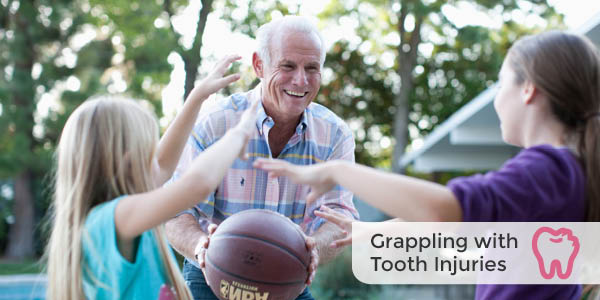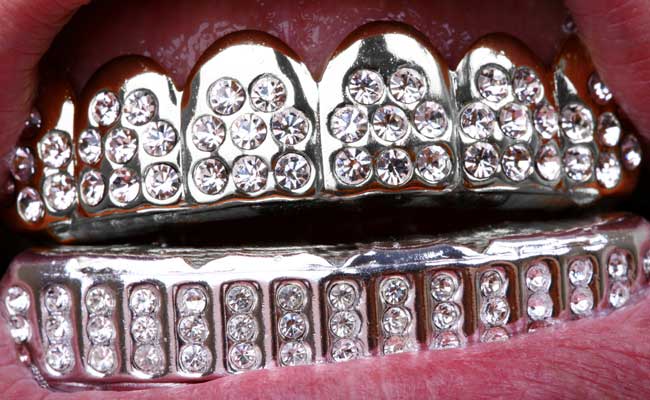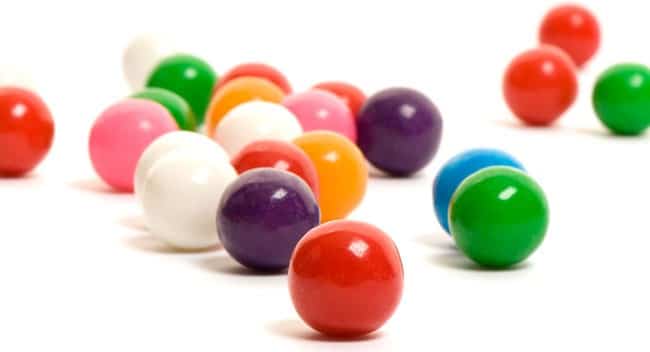7 Tooth-Saving Tips for Full-Contact Sports

From a solid hit on the football field to a stray left hook in an MMA fight the opportunity for severe dental injuries in full-contact sports is significant. Sports such as MMA, kickboxing, boxing, grappling, and wrestling are thrilling, and they provide excellent workouts and sustained confidence for people of all ages. And while most classes provide or require some form of protective gear, accidents can still happen. One of the most common causes of tooth loss is trauma caused by impact or unexpected contact with a hard surface. Breaking, chipping, and cracking that leads to a tooth needing to be removed can occur when engaging in sports that include partial or full-contact sparring. When trauma to a tooth occurs, there are things you can do to try to preserve the tooth and save it from loss. The following list is a guide for what to do when you are faced with an unexpected dental emergency. Knocked-Out Tooth: Rinse the tooth carefully, making sure not to wash away any remaining tissue. Attempt to place the tooth back in its socket carefully. If this is not possible, place it in a container of milk, or water with a pinch of table salt. Call your emergency dentist immediately. Your tooth has the best chance of being saved if you are seen within an hour of having it knocked out. Chipped, Cracked, and Broken Teeth: Gather and rinse all broken pieces of the tooth. Rinse your mouth with warm water and apply gauze if there is bleeding. Use a cold compress to relieve pain and swelling in the injured area, and contact your emergency dentist to be seen immediately. Fractured Tooth: Dentist can easily fix fractures with a composite restoration. A dentist should be seen within a couple days of the injury. Partially Dislodged Tooth: When a tooth gets pushed out of its proper position, it is important to manage the pain and get into your emergency dentist immediately. Apply a cold compress to the area and take a pain reliever such as acetaminophen or ibuprofen as needed. Lost or Broken Crown: Save your crown and set up an appointment with your emergency dentist right away. If possible, use over-the-counter dental cement to reattach the crown. If there is any pain, take an over-the-counter pain reliever such as ibuprofen or acetaminophen. Clove oil can also be used to soothe sensitive areas. Broken Braces: Orthodontic wax can be used to cover or temporarily reattach loose brackets and broken wires. If a broken wire is poking out and into your cheek or tongue, use the eraser end of a pencil to move it into a comfortable position, then cover it with wax, gauze, or cotton. See your orthodontist to have your braces repaired. Soft-Tissue Injuries: Tears, punctures, and lacerations to the soft tissues of the cheek, lips, or tongue should be cleaned and packed with gauze. A trip to the emergency room is necessary if stitches are needed. If you or your children are considering joining a full-contact sport, preparing for a dental emergency is key to preventing tooth loss. The following are a couple of items and information to have on hand: Dentist’s phone number and email address Small, portable container for dental emergency kit Saline solution Tissue Gauze Orthodontic wax Dental cement Compress Ibuprofen and/or acetaminophen Finally, one of the most important steps you can take toward protecting your smile in any sports-related activities is talking to your dentist about a mouthguard. According to the American Dental Association, sport mouthguards have been shown to reduce the risk of sport-related dental injuries. Having a dental provider fit you with one that is resilient, comfortable, and durable could mean the difference between keeping or losing your teeth in a sports-related incident. To find out more about mouthguards and protecting your teeth, call AV Sierra Dental Center in Palmdale, CA. We can help you get the right protective gear to keep your smile healthy white and free of missing teeth. Call today at 661.202.3542!
How do oral piercings affect oral health?

A Healthy Smile Is Your Best Accessory Body piercings have become increasingly prevalent over the past decade, and with more and more celebrities like Victoria Beckham, Tyrese, and Christina Aguilera sporting them, they are only gaining popularity among people of all ages. While piercings offer people the opportunity to express their individuality and add some extra bling to their personal style, some of the most popular piercings are located in the mouth area, which can be problematic. Do oral piercings damage teeth? Oral piercing can hurt your teeth and gums. It’s already easy enough to damage your teeth from day to day activities like chewing ice or trauma from sports. Complicate things with a piece of metal jewelry you just make it more likely to crack an incisor. In addition to an increased chance of injury an oral piercing can irritate your gums. Even without trauma having a stainless steel ball rubbing along your teeth can lead to enamel damage, scratches, and tooth sensitivity. If you’ve had any dental work done—including fillings or crowns—oral piercings can damage these as well, so if you don’t want to spend more money and time in the dental chair having your dental work repaired, we recommend choosing a non-oral piercing—if you’ve really got the urge to pierce something Popular face and mouth piercings include those in the tongue, lip, and cheek areas. The following are just some of the health risks and side effects associated with these piercings. Infection: Your mouth is home to a large number of bacteria that breed in moist environments. This is the perfect environment for an infection to occur. When an infection occurs in your mouth, it can become life threatening if not treated immediately. Excessive bleeding: On occasion a blood vessel gets punctured during the piercing process and results in prolonged bleeding. If not dealt with properly, severe blood loss can cause complications. Damaged gums and teeth: People with mouth piercings often develop the habit of playing with them, which may include biting and twirling them around the mouth. This can lead to scratched, cracked, and broken teeth and fillings. It can also damage the gum line. Allergic reactions: Sometimes people may unknowingly be hypersensitive to metals and can experience an allergic reaction. Nerve damage: Numbness at the site of the piercing is common. However, in some cases it remains a permanent condition due to nerve damage. Excessive saliva: Heavy salivation can result from wearing jewelry in your mouth. This can cause complications with your ability to chew and swallow correctly. It can also interfere with the pronunciation of words. If you do decide to get a face or mouth piercing, or if your child or adolescent has one, be prepared for four to six weeks of healing time. The following are some tips that will help you maintain your oral health should you decide to keep or get a mouth piercing: Make sure to keep the piercing site clean after you eat. Clear away any food particles by using mouthwash after each meal. Remove all jewelry when participating in sports, and ask the dentist about getting a mouthguard for protection. If you notice that you are developing habits that include biting or clicking your piercing against your teeth, stop immediately or consider removing the jewelry. If you think you may have an infection or might be developing an allergic reaction to the metal in your mouth jewelry, remove it immediately and call your doctor. The ADA advises against getting body modification to the mouth and considers these as invasive procedures with negative health benefits that outweigh the cosmetic effect on a person. How do you protect your teeth with oral piercings? If you already have piercings or decide that you want to get one there are ways to help protect and preserve your oral health. Keep the area clean – Be aware of food debris that can support harmful bacteria and pay extra attention to cleaning around the piercing or modification to prevent infection. Avoid rubbing your jewelry on your teeth – by preventing the metal parts of the jewelry from common in contact with your teeth you can prevent enamel damage. You should also pay attention the jewelry while speaking and eating to prevent accidents. Be extra mindful of oral hygiene – Brush your teeth twice each day, floss, use an oral rinse around the piercing and visit your dentist every six months to ensure that the piercing isn’t causing damage. Choosing to get a facial or oral piercing is an aesthetic decision that impacts your oral and whole health. Your at-home oral hygiene routine will be more important than ever should you choose to get one, as will your routine visits to the dentist and your dental cleanings. Make sure to let our provider know if you have an oral or mouth piercing so that he can help create a dental plan that will protect and maintain your best oral health. To find out more about mouth piercings, your oral health, and how we can help protect your teeth and gums, give your Palmdale dentist a call at 661.202.3542 today.
A Brief History of Grills

A Brief History of “Grills” Grills (or grillz) are, if not popular, at least fairly recognizable these days. Made of precious metals (gold and platinum being the most common) and often studded with diamonds, most grills are removable and worn over the front teeth. But where do they come from? Although many people would point to Nelly and his 2005 song, “Grillz,” as the starting point for the trend, they’re actually much older than that. (And no, we’re not just talking about rappers like Slick Rick, Flavor Flav, and Big Daddy Kane from the 80s and 90s, either). We’re talking ancient history. In ancient Italy, between 800 and 200 BC, wealthy Etruscan women wore teeth woven together with gold wire the thickness of a rubber band. The wire held together teeth that had been removed and were placed back into the mouth, so they made eating difficult. The practice wasn’t necessarily common, but archaeologists found documentation of around 20 sets of teeth woven together in this way. Etruscan civilization vanished as the Romans took over Italy, and this fashion trend died with it. In Latin America, Mayans actually cut small holes into their teeth and filled them with precious stones, typically jade. Again, this was a trend that only royalty and the wealthy could afford. Although the Mayan civilization has disappeared, many people in southeastern Mexico, Belize, Honduras, and Guatemala still wear gold tooth jewelry today. In ancient Filipino myths, the creator of the world, a deity named Melu, had gold teeth—and during what was the Middle Ages in Europe, Filipinos were filing down their teeth and decorating them with gold. Some of these decorations included gold bands that covered the entire front row of teeth; the oldest date to around 1300 AD. As the Renaissance began in Europe, dentistry was becoming more scientific and less superstitious—and Giovanni de Arcoli, a 15th century Italian professor of medicine, became the first author known to recommend filling cavities with gold to preserve them. Grills started appearing in rap and hip hop videos in the 80s, and became even more popular as Southern rap began to take off in the 90s and early 2000s. And now, they’ve jumped into mainstream culture, as celebrities like Madonna, Miley Cyrus, Katy Perry, and even Ryan Lochte have sported them in recent years. You might expect a dentist to come out against grillz as a health hazard, but no studies have proven that they’re bad for your teeth. As long as they’re removed and the teeth are brushed and flossed as appropriate, they shouldn’t cause health problems. Some metals can cause irritation; if it causes a rash, or bleeding, or other problems, just stop. Similarly, don’t clean them with anything toxic to ingest (like most jewelry cleaners), and don’t try to attach them permanently to your teeth with glue. But if you want to wear a grill, and you use some common sense and take care of your teeth, you’ll be part of a long tradition of dental jewelry. We can’t recommend a jeweler to create your grill, but if you have any questions about dental instruments—either ornamental or for health reasons—please give us a call at 661.202.3542 and we’ll be happy to answer your questions.
Four Foods That Can Damage Your Teeth

Last month, we looked at foods and drinks that can stain your teeth, but whiteness isn’t the only measure of healthy teeth. There are lots of foods that can chip your teeth or damage dental work in your mouth when you eat them. What are some of these problem foods? Your [LOCATION] dentist can warn you about some of the biggest culprits when it comes to chipped teeth, loose fillings, and broken crowns. Ice On a hot summer day, it’s great to fill a tall glass with ice and pour in some soda, lemonade, or tea to help cool down. You’re right if you assume that sugary drinks are bad for your teeth (they are!), but they’re bad in an over-the-long-term kind of way. In fact, lemonade and soda are also quite acidic, which isn’t good for your tooth enamel, either. However, it’s the ice that can actually chip your teeth if you chew it. Other hard foods can damage your teeth, too, so be careful when you’re eating things like baguettes, hard pretzels, and biscotti. Popcorn Lots of people enjoy buttered popcorn while sitting in a cool, air-conditioned movie theater, but unpopped kernels can definitely ruin the fun. They’re hard enough to chip a tooth if you crunch down on one of them by accident or on purpose. However, popcorn actually poses a double threat. The thin shell that covers the kernel can actually get stuck between your teeth or between your tooth and gum, giving bacteria a source of food and promoting tooth decay. Fruits with pits What do olives, cherries, dates, and peaches all have in common? They all have pits, of course, and those pits can damage teeth. If you accidentally bite into a pit, you can definitely crack or loosen a crown—or damage regular tooth enamel. Candy Pretty much every type of candy can damage your teeth. Hard candies can chip teeth if you bite on them or chew them up; if you suck on them and let them dissolve slowly, you’re basically giving your teeth (and the bacteria in your mouth) a sugar bath. Chewy candies, like caramels or taffy, can stick to your teeth, increasing the risk of cavities, or stick to fillings and crowns, loosening them. But sour candies are probably the most damaging of all because they combine three dangers to your teeth all in one. They’re loaded with sugar and they stick to your teeth, but the sour flavor actually comes from acids, which eat away at tooth enamel. You’re probably noticing a theme by now. Hard foods can damage your teeth. We’re not trying to you away from enjoying the sorts of treats you love. However, if you’re eating something that could chip your teeth, pay attention while you’re eating it. If you’re eating something that could damage your teeth in another way, remember to drink some water to rinse out sugars and acids. And always brush your teeth and floss after you’ve eaten any of the foods on this list. If you’ve damaged a tooth or lost a filling because of something you ate, give your Palmdale dentist a call at 661.202.3542 to make an emergency appointment. Come on in, and we can get your damaged tooth fixed right away!
Why do I Need Professional Teeth Cleanings?

Why do I Need Professional Teeth Cleanings? Let’s look at five reasons why you should get your teeth regularly cleaned. 1. We check for oral cancer With cancer, the sooner it’s detected the better chance you have of successfully getting rid of it. Oral cancer is no different. During each teeth cleaning, we check for any signs of oral cancer. 2. Cleanings help prevent cavities Brushing and flossing every day will do wonders in maintaining a healthy mouth. But, sometimes you may forget to floss, or maybe you had a few too many sodas and candy bars. Our dental hygienists will ensure that your mouth is free of plaque, and can also give you tips for your at-home cleaning if they see something you may not be doing. 3. Cleanings help prevent gum disease Gum disease can easily creep up on anyone. It is often painless until it becomes a bigger problem. When diagnosed with gingivitis, it can still be reversed with proper gum maintenance. Once gingivitis progresses to periodontal disease, it requires ongoing professional care to prevent further damage to your mouth. Professional cleanings at twice a year drastically reduce the risk of gum disease ever starting. 4. Having a healthy mouth contributes to a healthy life Poor oral health has been connected with diagnoses for diabetes, heart disease and pregnancy complications. Keeping your gums and teeth healthy will help prevent the occurrence of these diseases. 5. Regular cleanings are cheaper than taking care of oral problems Receiving two professional cleanings a year may be an expense you don’t like to see. However, teeth cleanings are much cheaper than other procedures, such as root canals, scaling and root planing, and dental implants. There is nothing better than a freshly cleaned mouth! Our dental hygienists will make sure you have pain free experience, and you can leave knowing you’ve taken a giant leap forward in maintaining a healthy smile. If you have more questions about our professional teeth cleanings, or if you’d like to schedule an appointment, please call your Palmdale dentist at 661.202.3542.
